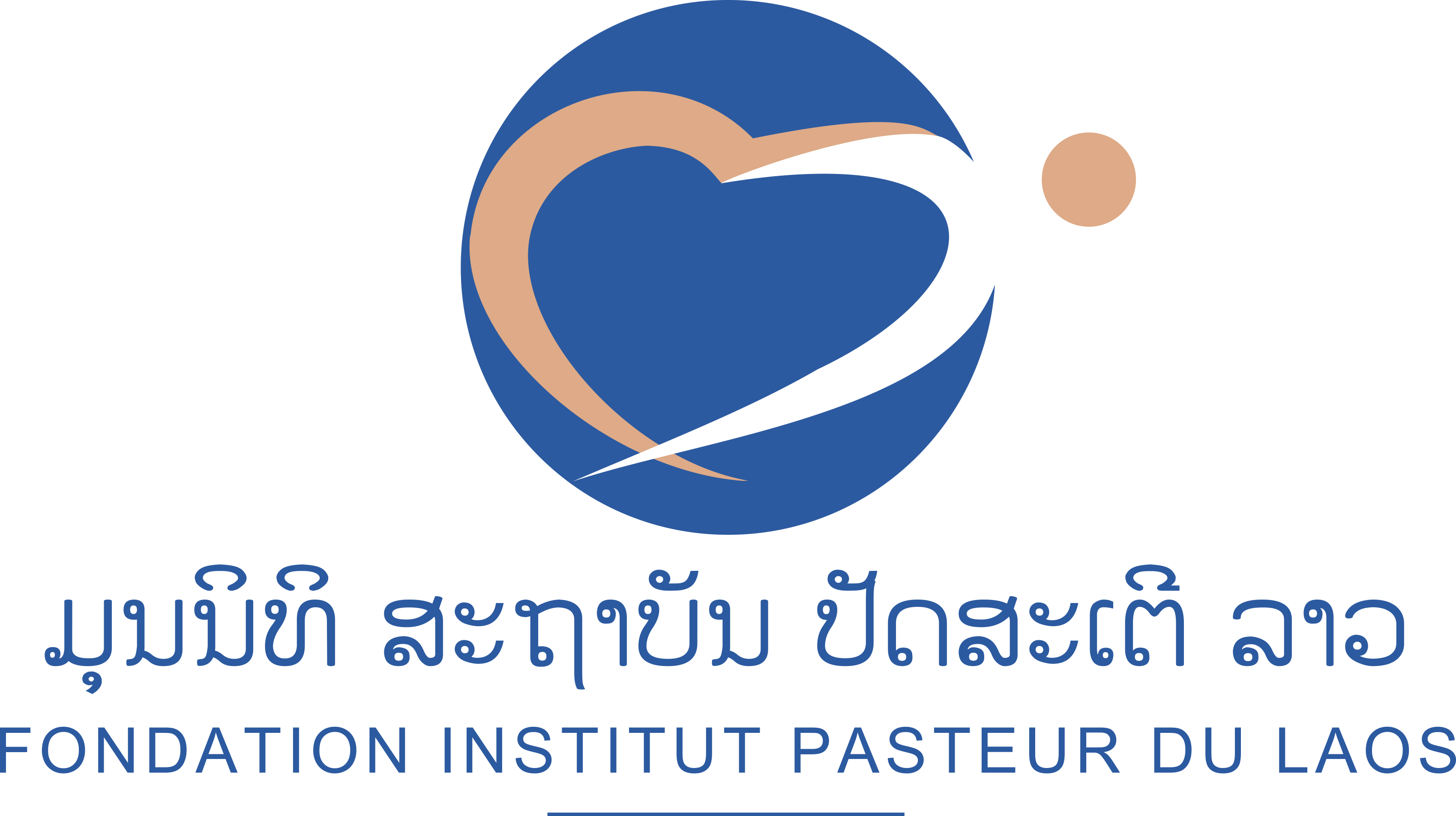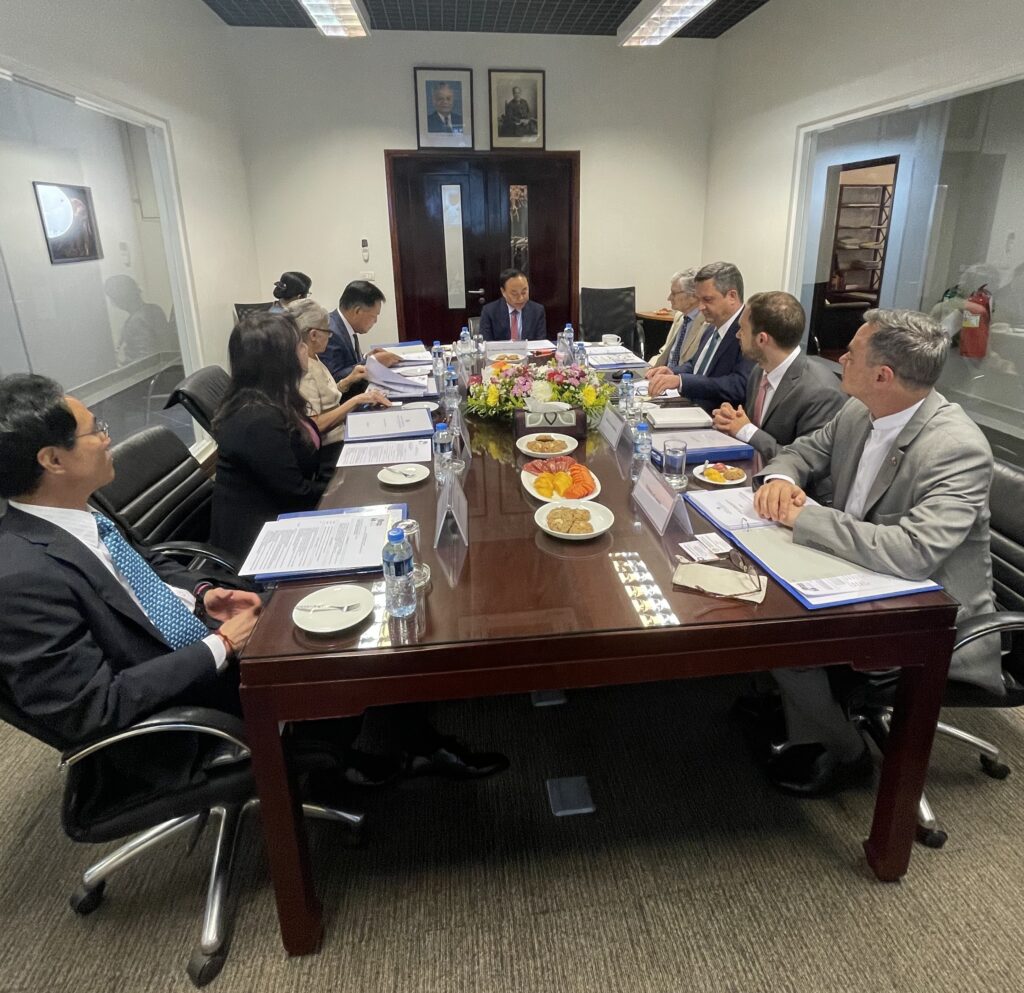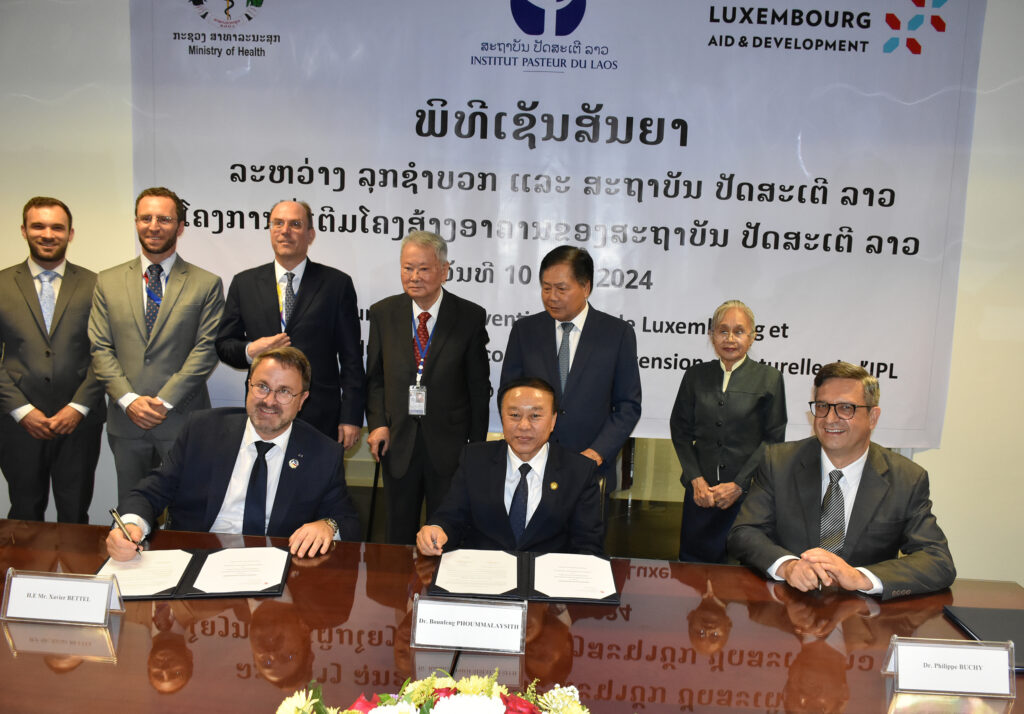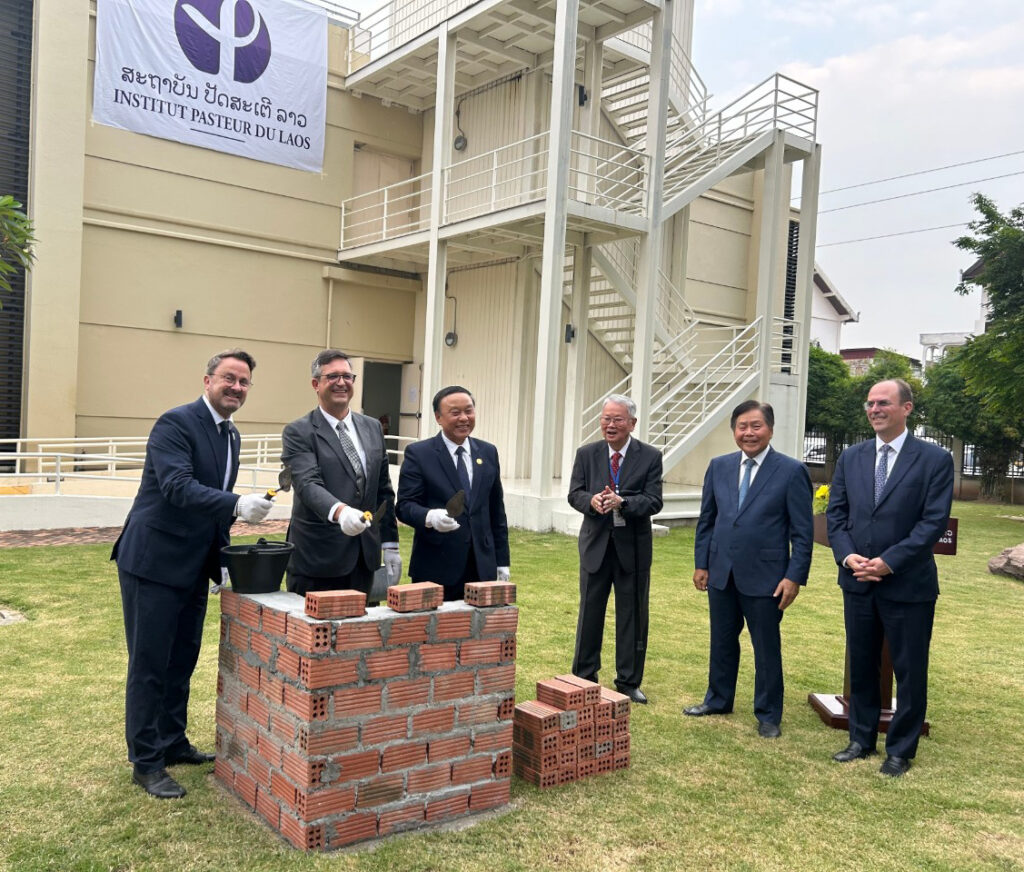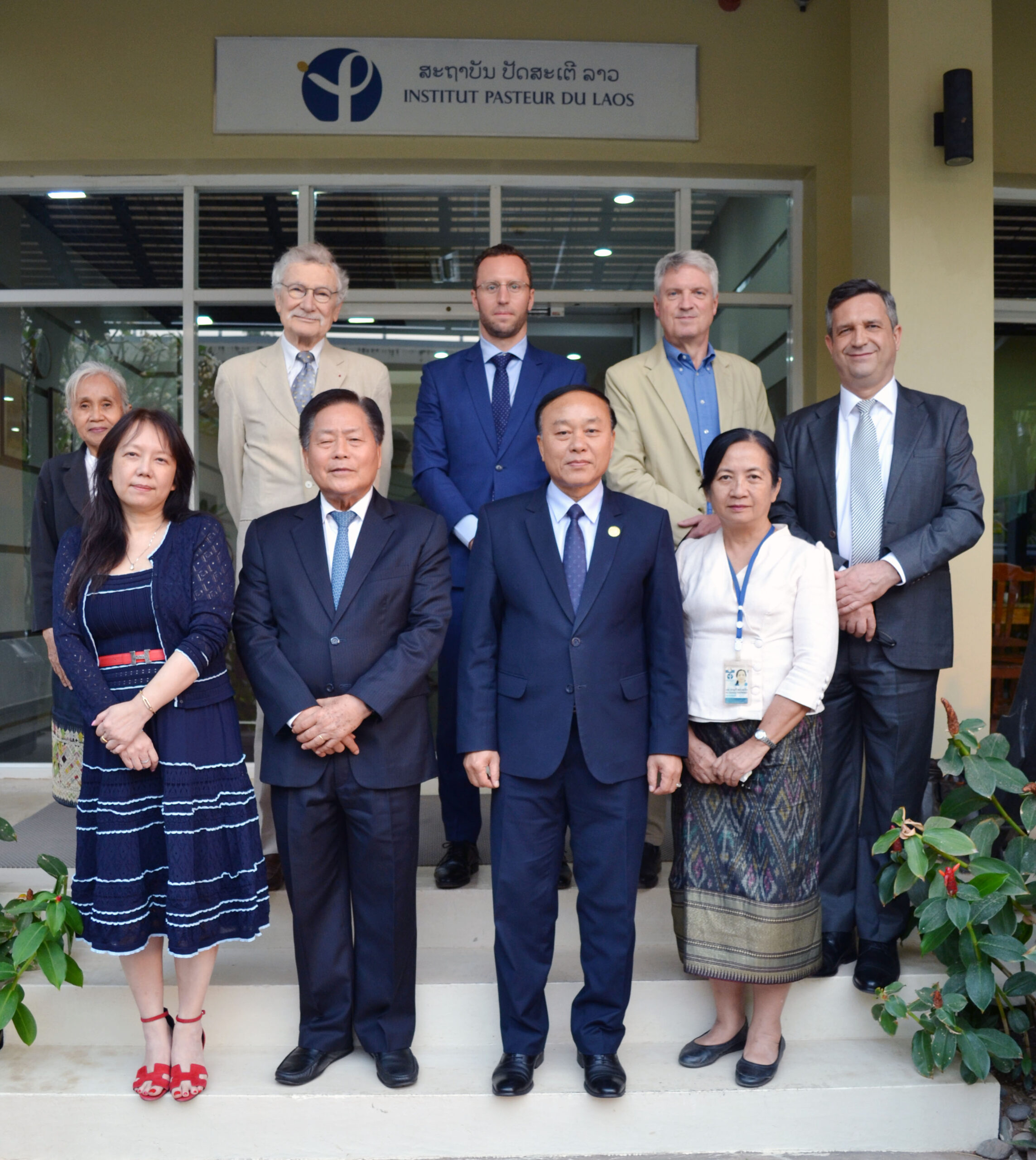Lao – Lux lab / Vaccine preventable diseases 2018
Head of Laboratory: Professor Claude MULLER, Scientific Director
Representative of Laboratory: Dr Antony BLACK
Email:
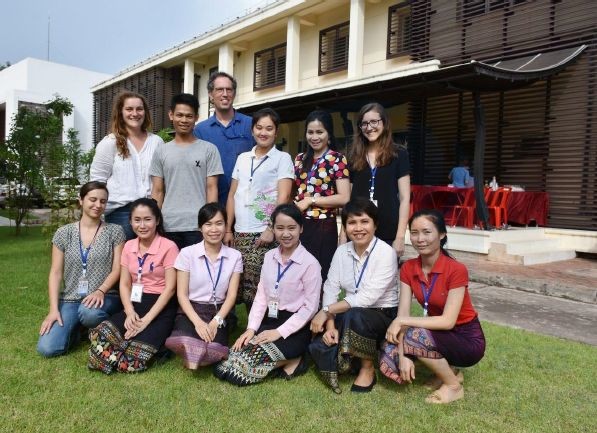
Executive summary
The LaoLux Laboratory (LLL) aims to build capacity for investigations of human and animal infectious diseases that are of relevance for Lao PDR. All studies are conducted in close collaboration with local partners and focus mainly on the molecular epidemiology of vaccine-preventable infectious diseases, as well as animal and zoonotic diseases. These studies have importance for stakeholders in public and animal health by providing estimates about the burden of specific infections, by promoting outbreak control and vaccination programmes, by improving animal health and productivity, and by proposing measures to optimize national health strategies.
In this year’s report, we show preliminary data from a study of vaccine immunogenicity. Our previous data showed low immune response in children vaccinated with 3 doses of pentavalent vaccine in 3 provinces of Lao PDR. The follow-up study shows that, despite an overall improvement in immunogenicity, antibody levels remain low in vaccinated children. The levels are particularly low in children vaccinated in health centres far from the district hospital. The data led us to recommend that a booster dose of pentavalent vaccine to be introduced into the routine childhood vaccination schedule. This was formulated as a policy brief and distributed to Lao National Immunisation Technical Advisory Group (NITAG), Expanded Programme on Immunisaion (EPI), WHO, UNICEF and Luxembourg Development Corporation.
One of the recent successes of the Lao National Immunisation Programme was the elimination of maternal neonatal tetanus in 2014. This was largely a result of the policy to vaccinate women of child-bearing age and also during pregnancy, coupled with a promotion of hygienic birth practices. We completed a study in Savannakhet Province to assess the vaccine coverage during pregnancy and also the seroprotection of mothers and newborns in an area covered by the national free ANC scheme. Our findings highlight a low vaccination coverage during pregnancy in these women, and we make recommendations to enhance coverage including vaccinating at ANC 1 and 2, rather than delay. Our findings and policy recommendations have again been formulated as a policy brief.
A major focus of our research is hepatitis B virus (HBV). Lao PDR has a high burden of HBV chronic infection and high levels of liver cancer. In this report, we present data from one of our studies which determined HBV and hepatitis C virus (HCV) exposure and infection in a vulnerable group – female garment factory workers. We found high levels of exposure in these young women and low knowledge and access to health facilities. In addition to vaccination of these women, the occupational health service should be strengthened.
In a collaboration with the Children’s hospital in Vientiane Capital, we were interested to determine the seroprevalence of varicella in the Lao population and also to determine the proportion of fever rash cases that were caused by varicella infection. Our data highlight several important issues. Firstly, varicella zoster virus infection is widespread and largely unrecognized in Lao PDR, and secondly, fever rash surveillance in Lao PDR is inadequate, with missed measles and rubella cases among children. These observations have important implications for public health policy, which we report.
We also present data on hepatitis E virus (HEV) in Lao PDR. This zoonotic virus is found in humans and animals such as pigs. In 2 studies, we demonstrated that HEV is highly prevalent in humans, swine and ruminants in Lao PDR. By determining risk factors associated with infection, we are able to make concrete policy recommendations to reduce exposure and risk.
External presentations
+ “Polio virus immunity in Lao People’s Democratic Republic” Global Vaccine and Immunization Research Forum, Bangkok, March 2018
+ “Hepatitis B virus in Lao Blood donors” Global Vaccine and Immunization Research Forum, Bangkok, March 2018
+ “Low immunogenicity of pentavalent vaccine in Lao People’s Democratic Republic” Global Vaccine and Immunization Research Forum, Bangkok, March 2018
+ “Hepatitis B virus in Lao PDR” 2nd China-ASEAN Diseases Prevention and Control Collaboration Forum, Nanning, China, September 2018
+ “Vaccine research in Lao PDR” Guangxi Centre for Disease Control, Nanning, China, September 2018
+ “Knowledge of hepatitis B, attitude and practice for blood safety services in Lao PDR” Mekong Hepatitis Symposium, September 2018
+ “Hepatitis B virus infection among Lao dentists in Vientiane capital: seroprevalence, knowledge, attitude and practice” National Health Research Forum, Vientiane, October 2018
+ “Seroprotection on different levels of the health care system after vaccination with DTP-HepB-Hib in Laos” National Health Research Forum, Vientiane, October 2018
+ “Hepatitis B virus in Lao adolescents born after vaccine introduction” National Health Research Forum, October 2018
+ “High circulation of hepatitis E in pigs and professionals exposed to pigs in Laos” One health research conference, Vientiane, November 2018
+ “Livestock Diseases Threatening Smallholder Farmers in Lao People’s Democratic Republic” International Meeting on Emerging Diseases and Surveillance, Vienna, November 2018
Training activities
+Supervised 3 LTPHI Masters students. The subjects of their theses were;
>“Hepatitis B virus in Lao dentists”
>“Blood bank donors and staff knowledge, attitude and practice towards Hepatitis B virus”
>“Hepatitis B virus in Lao adolescents, a school-based study”
+Short immunology course for IPL staff, July 2018
+ Training for Lao Military staff in vaccine-preventable infectious diseases, August 2018
+ Training of Lao veterinary students, April 2018 and October 2018
+ “Immunology” and “Vaccinology” seminars to first year Masters students from Lao Tropical and Public Health Institute, October 2018
+ 2-days-laboratory workshop at IPL provided to staff and students from Faculty of Agriculture and IVET school, October 2018
Collaborations with local partners
+ The Lao Red Cross
+Several hospitals at the Central, Provincial, district and health centre level
+ Lao Tropical and Public Health Institute University of Health Sciences
+Faculty of Agriculture, National University of Laos
+ National Immunisation Programme
+ IVET school, Xiengkhouang
+ University of Health Sciences, Vientiane
Manuscripts published 2018
“Immunity levels to poliovirus in Lao children and adults before the vaccine-derived polio outbreak: a retrospective study.” Pauly et al. Plos One, May 2018
“Evidence of increased hepatitis E virus exposure in Lao villagers with contact to ruminants” Tritz et al. Zoonoses and Public Health, June 2018
“Seroprevalence and risk factors of hepatitis B and C virus infections in female workers of Lao garment factories” Xaydalasouk et al. Plos One, July 2018
“High circulation of hepatitis E virus in pigs professionals exposed to pigs in Laos.” Khounvisith et al. Zoonoses and Public Health, August 2018
“Etiology of viral respiratory infections in Northern Lao People’s Democratic Republic.” Snoeck et al. J Med Virol. October 2018
We were also joined by Laetitia Bosc, a Masters student from Institut Pasteur, Paris, who was conducting research on the knowledge, attitude and practice (KAP) of Lao adolescent girls towards vaccination.
Emma Pollack, a Public Health graduate from Cornell University, joined us for 6 months to work on blood donor KAP regarding blood safety.
Noy Davy from the Lao military medical service has also joined our laboratory for 1 year to receive training in laboratory techniques and research.
Financial support
The laboratory is largely funded by a grant from the Government of the Grand Duchy of Luxembourg and operates in close partnership with the Infectious Disease Research Unit at the Luxembourg Institute of Health, Luxembourg. A “Lao Equity through policy Analysis and Research Networks” (LEARN) research grant was awarded to Dr. Phonethipsavanh Nouanthong in 2018 to investigate the immunogenicity of human papillomavirus in Lao girls. We also receive support from ARBOSHIELD grant to facilitate training of Lao military staff.
Team:
Scientists:
1. Dr. Antony Black, Responsible of the Lab
2. Dr. Phonethipsavanh Nouanthong
Junior scientists:
1. Dr. Kinnaly Saidalasuk
2. Dr. Vilaysone Khounvisith
Technicians:
1. Ms. Latdavone Khenkha
2. Ms. Bounta Vongphachanh
3. Ms. Nouna Innoula
Visiting scientists from Department of Infection and Immunity, Luxembourg: Dr. Maude Pauly (Post-doctoral scientist)
1. Lisa Hefele (PhD student)
2. Daria Kleine (Medical student)
Project carried on in the lab
+Immune response to routine immunisation with the pentavalent vaccine at different levels of the health care system
+Seroprevalence and risk factors of hepatitis B and C virus infections in female workers of Lao garment factories
+ Varicella zoster and fever rash surveillance in Lao People’s Democratic Republic
+Maternal and neonatal tetanus
+Etiology of viral respiratory infections in Northern Lao PDR
+Hepatitis E virus epidemiology in Lao PDR

